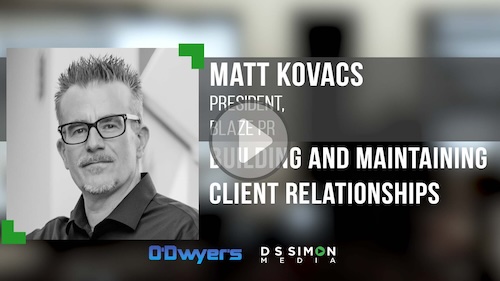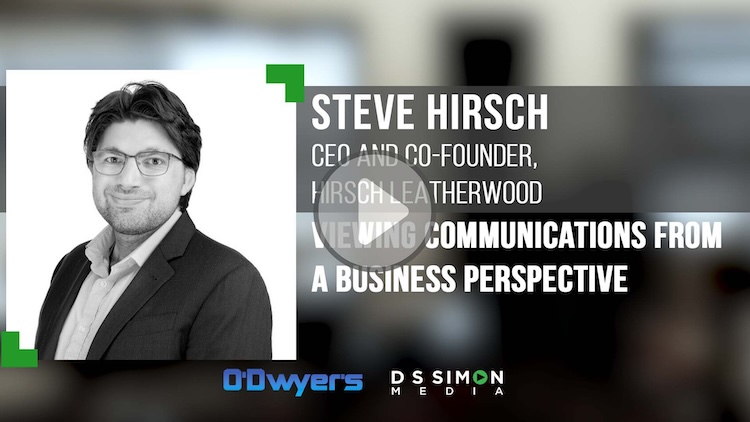Dave Jacobs developed Homethrive to provide support for people who have to balance a job with the demands of caring for a loved one.
When it comes to keeping his own employees connected and engaged in the midst of the other demands their lives are throwing at them, Jacobs says that "overcommunication" is key:
"We just make sure we overcommunicate on even some of the more mundane things, they could be position changes, it could be new customers and things of that nature," he tells Doug Simon.
He also places a premium on maintaining personal contact with employees. "We have an all hands meeting every two weeks where we share a variety of different topics, and each one of our our employees shares something about themselves so we get to know each other a little bit better."
In-person interactions, he says, also remain a key element in the mix. "If people are distributed and they never get together in person, there's no connectivity."
Jacobs adds that the virtues of overcommunication can also extend over into the practice of effective PR. "The rule of thumb I think about," he says, "is if I'm not bored of the message and feel like I'm droning on about it ad nauseum, I probably haven’t communicated enough because people, you know, they learn and understand things in different ways."
He also stresses the importance of optimism and transparency. "We think transparency is critically important, one, because it builds trust with employees, and that's kind of one of the most important kind of areas of currency that you have," Jacobs says. As regards optimism, he says that "it's critically important to confront the reality and the facts as they are today and really understand them, but to believe that you control the outcome and that there's a better future that awaits you."
But to really help members of a distributed work balance life's demands with the job's necessities, Jacobs says, requires giving people "some space and support" as well as flexibility.
Providing that support, he tells Simon, can help improve a work environment, in which, on a national average, about a third of people facing such work/life conflicts leave their job. "We're able to reduce that from about a third to 6 percent. So the vast majority can be there for their career and be there for their families."
View all of the interviews in the “PR's Top Pros Talk” series. Subscribe to get notified when new episodes are available.
Interested in taking part? Contact Doug Simon at [email protected]
D S Simon Media helps clients get their stories on television through satellite media tours and by producing and distributing content to the media. The company also produces live social media events.










 Have a comment? Send it to
Have a comment? Send it to 
No comments have been submitted for this story yet.